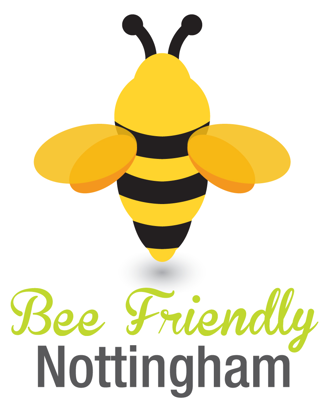Biodiversity in Nottingham City
Biodiversity is the diversity of life on Earth. It includes all forms of life such as plants, animals, fungi and micro-organisms, as well as the habitats and ecosystems in which they live and interact.
Nottingham’s Open Space Network (OSN) comprises approximately 2054 hectares of the city and includes a range of typologies including agricultural land, allotments and community gardens, amenity space, cemeteries, institutional land such as school playing fields, outdoor sports facilities, parks and gardens, and children’s playgrounds, as well as those areas specifically identified as providing natural and semi-natural habitat (which comprises approx. 455 hectares of the total).
The OSN encompasses both publicly accessible space for people to be outdoors, exercise, travel, play, relax and get closer to nature, as well as incidental spaces that form important linkages, corridors or steppingstones for wildlife.
Nottingham has wildlife sites specifically designated for their nature conservation value, designations that help to protect some of our most highly valued and significant natural spaces and habitats. Nottingham also plays host to lots of protected species and interesting animals including several species of bat, badgers, water voles, reptiles, amphibians and birds, as well as a diverse assemblage of invertebrates.
Within the city boundary, there are:
- More than 60 biological and 18 geological Local Wildlife Sites (LWS)
- 14 Local Nature Reserves (LNRs) with more on the way
- 3 Sites of Special Scientific Interest (SSSIs)
Nottingham City Council is a member of the Nottinghamshire Biodiversity Action Group. A local strategic group that works together to protect and enhance wildlife locally and deliver the Nottinghamshire Biodiversity Action Plan.
You can learn more about BAG projects and local Biodiversity by visiting the Nottinghamshire Biodiversity Action Group Website.
Local Nature Recovery Strategies (LNRSs) are a new England-wide system of spatial strategies established by the Environment Act 2021. They must be evidence-based, locally-led and collaborative. Nottingham City Council are currently working closely with Nottinghamshire County Council, who are the DEFRA appointed Responsible Authority, to produce the LNRS for Nottinghamshire and Nottingham.
For more information about the strategy, to check on its progress and for contact details for the LNRS Co-ordinator follow this link:
Back in 2014 Nottingham City Council started the Bee Friendly Nottingham project to work towards better protecting local bee populations and becoming a more pollinator-friendly city.
The ongoing project has involved planting more pollinator-friendly plants in our planting schemes and making changes to the way we manage many of our road verges and open spaces, allowing grasses to grow and wildflowers to bloom throughout the city.
We have seeded new wildflower meadows in all wards of the City and we continue to identify new sites and spaces every year when planting, seeding or management changes will provide additional nesting and egg laying opportunities, foraging, and connectivity for our pollinators. Many of these spaces are signposted – look out for our campaign logo.
You can also help bees and other pollinators with some small or simple changes to what you plant or how you manage your garden or outdoor space.
For example:
- Let your lawn grow and flower for longer between cuts in the spring and summer months giving plants such as clover a chance to flower for longer.
- Avoid over-tidying your garden in the autumn and winter. Dead and hollow stems are great for some species to make their homes and piles of leaves and sheltered areas support hibernating insects.
- Plant a range of species that have open and tube-shaped flowers (avoid the overly frilly and complex cultivars) that bloom throughout the year to ensure an ongoing supply of nectar and pollen.
- Ivy is a great late source of nectar for bees that are still active. Let this flower before you cut it back or leave it uncut for a few seasons to feed the berries to the birds too!
- Let the dandelions bloom! These are an essential early spring source of nectar for queen bees coming out of hibernation.
The Nottinghamshire Biological and Geological Records Centre (NBGRC) undertakes all botanical survey work associated with Local Wildlife Site (LWS) selection, and also coordinates and interprets the collection of data under non-botanical LWS selection criteria.
The NBGRC is also responsible for holding and updating all data associated with the LWS system, and for mapping sites using GIS software. They provide data about LWSs, protected faunal species and flora of local importance to local authorities and statutory agencies, to members of the public, and to ecological consultancies (as part of their commercial activities).
The work of the NBGRC supports the Local Sites Panel in identifying and designating Local Wildlife Sites based on set criteria.
You can download their flyers and leaflets by clicking the link below for more information.
- Local Wildlife Sites Nottinghamshire - What they are and why they matter
- Nottinghamshire Local Wildlife Sites Handbook - Part 1
- Nottinghamshire Local Wildlife Sites Handbook - Part 2a
- Summary of changes to Local Wildlife Sites Handbook
- Nottinghamshire Local Geological Sites Criteria
Please contact us for all enquiries relating to the Nottinghamshire Biological and Geological Record Centre by clicking button below.
- Address: (NBGRC) Courtyard Building, Wollaton Park, Nottingham, NG8 2AE
- Email - nbgrcg@nottinghamcity.gov.uk
- Tel - 0115 876 2188
- Online - Contact Us Online
The City Council manages open spaces for the benefit of people and wildlife, and to maximise the diversity and quality of habitats that these spaces provide.
If you would like to get involved with helping to maintain your local greenspace, wildlife site or nature reserve, you can find out more information by visiting the Nottingham Green Guardians website to look for volunteering opportunities with us or our partners.
Keep up-to-date on our Facebook Page
Related pages
Feedback submitted to us on this form is monitored but you won’t receive a reply. If you need a response please contact us.